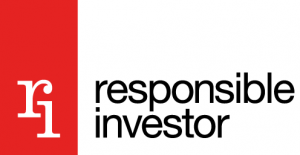Decades of eroding job quality and financial engineering have not only impacted the lives of millions of people, but have finally caught up with investors. As people struggle to pay their bills, keep a roof over their heads, food on their tables, among other basic needs including healthcare, this real-life pain cascades across the economy – impacting all stakeholders – investors and communities alike.
Dangers that manifest economy-wide are known as “systemic risks.” In normal times, portfolio diversification can be a successful financial strategy to avoid overexposure to any particular risk. However, systemic risks occur across a wide swath of assets, such as stocks, bonds, currencies, and commodities, as well as industries and geographies simultaneously. Because the effects are so widespread, diversification offers little help.
Some investors have turned to “responsible investing” and the integration of environmental, social, and governance (ESG) into investment decisions to manage risks related to economic inequality. Mainstream investors tend to be interested solely in ESG risks that, in the words of the Sustainability Accounting Standards Board (SASB),” are reasonably likely to impact the financial condition or operating performance of a company and therefore are most important to investors” – a concept known as “financial materiality.” However, there are many issues which, when aggregated across the economy and investors’ portfolios of companies, are material to investors even if they aren’t considered material to a particular company. Examples include paying workers a living wage, ensuring that workplaces have robust worker grievance mechanisms, allowing workers to bargain collectively, and the quality of benefits like paid time off. ESG also typically does not factor in investment structure issues, such as financial engineering, which has not only squeezed workers, but also destabilized financial markets.
Inspired by the successful uptake of the Task Force on Climate-related Financial Disclosures (TCFD), the Predistribution Initiative and Rights CoLab are collaborating to build momentum for a Task Force on Inequality-related Financial Disclosures (TIFD). TIFD aims to improve transparency on corporate and investor contributions to inequality that present risks to the economy.
We outline further rationale for TIFD in this article published in Responsible Investor.
A co-creation process involving diverse stakeholders including civil society, investors, companies, and policy makers will be critical for a successful framework. We invite you to join us in this effort. For more information, visit www.thetifd.org
Photo by Vincent Garnier on Unsplash




